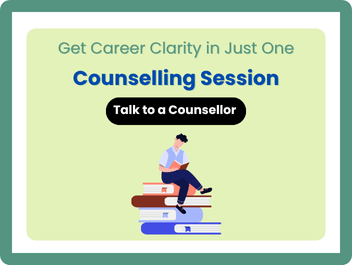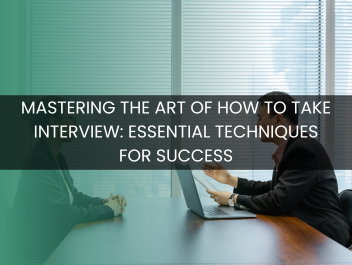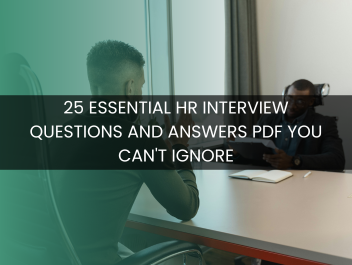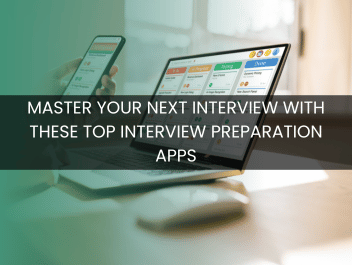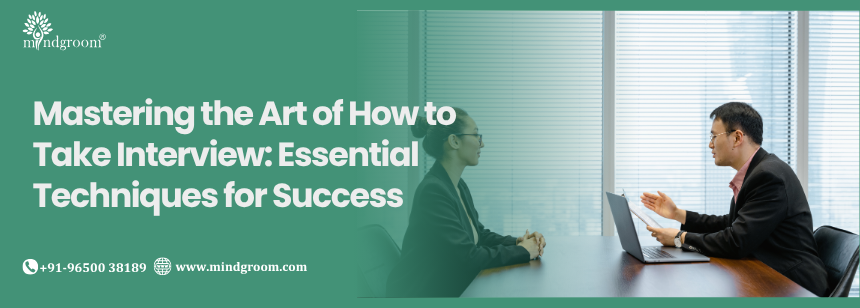
Mastering the Art of How to Take Interview: Essential Techniques for Success
In today's competitive job market, acing an interview is crucial to landing your dream position. Understanding the intricacies of how to take interview can make all the difference in showcasing your potential to employers. From preparing thoroughly to mastering the art of building rapport with interviewers, there are various strategies that can set you apart from other candidates.
The interview process is more than just a question-and-answer session; it's a decisive factor in job preparation that highlights your qualifications and fit for the role. With different types and formats to navigate, having a grasp on common practices and potential pitfalls can boost your confidence. Researching the company and job, preparing your own set of questions, and understanding what interviewers are looking for are critical steps you shouldn't overlook.
Throughout this article, we will delve into essential techniques for mastering the art of how to take interview successfully. From job preparation pointers to managing nerves during the interview, we'll explore practical advice to ensure you present yourself in the best light. Whether you're a seasoned professional or new to the job market, these insights will equip you with the tools needed for interview success.
Table of Content
Understanding the Interview Process
To effectively understand how to take interview, it's important to grasp the interview process itself. This cycle is critical for both employers and candidates as it helps determine the fit for a job role. An interview process usually involves several stages, beginning with initial screening, followed by rounds of interviews, and concluding with the selection and negotiation phase. Each part is designed to assess a candidate's suitability, skills, and alignment with the job requirements and company culture. Interview processes vary across organizations, but the end goal remains consistent: to find the ideal candidate for a position.
Types of Interviews
When learning how to take interview, understanding the types of interviews is essential. There are several common types:
- Behavioral Interviews: These involve asking candidates to give examples of past experiences to assess their behavioral skills.
- Technical Interviews: Often used in tech interviews, these focus on evaluating a candidate's technical skills and problem-solving abilities.
- Panel Interviews: Conducted by a group of interviewers to offer diverse perspectives on a candidate's responses.
- Phone or Video Interviews: Used for initial screenings or when in-person interviews are not feasible.
Each type of interview has its unique format and purpose, aiming to evaluate different aspects of a candidate's profile.
Purpose of Interviews
The purpose of an interview is multifaceted. Firstly, it allows employers to understand whether a candidate's skills and experiences meet the job requirements. Interviews also offer insights into a candidate's organizational skills, leadership skills, and ability to handle stressful situations. Additionally, interviews help assess cultural fit, ensuring the candidate aligns with the company's values and workplace environment. For candidates, it's a chance to understand the job description, express their salary expectations, and gauge whether the role aligns with their dream job aspirations. Ultimately, interviews serve as a crucial step in effective job preparation.
Common Interview Formats
Various interview formats are employed during the hiring process. Some of the most common include:
- One-on-One Interviews: A job interviewer directly engages with the candidate to assess their abilities and relevance to the position.
- Group Interviews: Where several candidates are interviewed together, allowing the hiring manager to observe interpersonal interactions and team player qualities.
- Case Interviews: Here, candidates are given real time problems to solve, particularly useful in assessing analytical and problem-solving skills.
Each format serves a specific purpose and is chosen based on the position, industry, and specific job requirements. Understanding how to take interview in these formats can dramatically enhance the interview experience for both candidate and employer. Effective preparation, understanding the hiring process, and being aware of the acceptable answers can set a candidate apart, helping them secure the actual interview and, ultimately, the job position.
Job Preparation
Effective job preparation is crucial to acing an interview. It involves understanding how to take interview questions and using them to your advantage. This process not only includes familiarizing yourself with the job description but also involves the detailed research of the organization and preparing meaningful questions to ask. Job preparation ensures that you are ready to present your relevant skills, technical skills, and leadership skills in a positive light, making you a strong candidate for the job interviewer. Identifying common interview questions and planning acceptable answers can place you ahead in the rounds of interviews.
Researching the Company
When preparing for a job interview, researching the company is a pivotal step. Understanding the company culture and the hiring process can significantly impact your job preparation. Start by exploring the company’s website, focusing on their mission and values. Research any recent news articles about the company, as this shows you are informed and proactive. Understanding the company culture helps in tailoring your responses during the interview process, demonstrating that you are a team player and a good fit.
Being aware of the company’s milestones and achievements indicates a well-prepared candidate. It shows that you have invested extra time in understanding the company’s impact in the industry, preparing you to discuss how your experience aligns with their goals. Researching the company thoroughly provides insights into the potential salary range and salary expectations, which can help in salary discussions during actual interviews.
Understanding the Job Description
A key component of how to take interview preparation seriously is understanding the job description. This document outlines the job requirements and is a roadmap for how you should shape your interview responses. Take note of specific skills and attributes that the hiring manager is looking for. If the job description emphasizes organizational skills and leadership skills, make sure to highlight relevant experiences that showcase these attributes.
Carefully dissecting the job description also helps you prepare to address any behavioral questions related to stressful situations or problem-solving skills. By knowing what is expected, you can effectively communicate that you are not only capable of fulfilling the required duties but are also an asset to the team. Understanding the job description clearly can streamline your focus during the interview process and improve your performance in tech interviews or other specialized rounds of interviews.
Preparing Your Own Questions
An often overlooked aspect of job preparation is preparing your own questions for the hiring manager. Asking insightful questions demonstrates your genuine interest in the role and how seriously you take your career decision. Consider asking questions about how success is measured in the role, or inquire about future projects to understand better how you can contribute to the dream company.
Your questions can also echo your eagerness to know more about the team dynamics, company culture, or the organizational skills valued by the current company. Asking about opportunities for growth and development signifies your commitment to the potential employer and your desire to align with their objectives and expectations. Carefully prepared questions can leave a lasting impression on the interviewer, enhancing your chances to secure the dream job.
Interview Preparation Tips
Interview preparation is essential for landing your dream job. To excel in an actual interview, you must understand the job description and meet the job requirements. The interview process involves multiple steps, including refining communication skills, understanding company culture, and anticipating rounds of interviews. By preparing well, you demonstrate organizational skills and leadership abilities to the hiring manager. It’s important to focus on your technical skills and relevant experience to make a solid career decision. This article will guide you through how to take interviews effectively, ensuring you leave a lasting impression on your job interviewer.
Practicing Common Interview Questions
Practicing common interview questions is a pivotal part of job preparation. Familiarizing yourself with expected behavioral questions will build your confidence. Start by researching common interview questions related to the job description. Imagine yourself in stressful situations where your team player skills or leadership skills are tested. Rehearse your responses, focusing on relevant skills and past experiences. Prepare acceptable answers for potential questions about salary range and salary expectations. By doing this, you’ll be ready to face any curveballs during your tech interviews or other job interview types.
Dressing for Success
Dressing for success can set the tone for your interview. Your attire reflects your professionalism and understanding of company culture. When preparing for a job interview, consider the industry and the job description to select appropriate clothing. An outfit that enhances your confidence can positively influence your performance in the interview process. Focus on neatness and ensure everything is well-fitted, as this impacts the hiring manager's impression. Investing extra time in planning your attire can pay off by aligning with the expectations of your current company or dream company.
Managing Anxiety and Nervousness
Managing anxiety and nervousness is crucial to thriving in job interviews. Feeling nervous is normal, but excessive anxiety can hinder your performance. Develop practices that help calm your mind, such as deep breathing or visualization. Focus on your strengths, such as technical skills and organizational skills. Remind yourself of your qualities that match the job requirements. Establish a routine that provides extra time for relaxation before the actual interview. By doing so, you maintain composure and highlight your capabilities, which ultimately helps you leave a positive impression.
Arriving on Time
Arriving on time is a fundamental part of the interview process. Punctuality shows respect for the interviewer's time and the hiring process. Plan your route and allow for any delays to ensure you arrive at your destination with extra time to spare. Being early will give you real time to collect your thoughts and adjust to the environment. This practice demonstrates organizational skills, crucial for a successful career. Arriving on time sets a positive tone for the interview and reflects reliability, making you a favorable candidate for both your current company and future opportunities.
During the Interview
In the realm of job preparation and knowing how to take interview successfully, the actual interview is a crucial part of the hiring process. It's your opportunity to showcase your skills, experience, and how you fit into the company culture. From understanding common interview questions to being prepared for rounds of interviews, each step has its unique challenges. It's essential to prepare thoroughly beforehand, as it allows you to navigate the process smoothly, making a positive impression on the hiring manager. By doing so, you can enhance your chances of landing your dream job. Remember, the way you present yourself during the interview process can significantly impact your career decisions.
Building Rapport with the Interviewer
Building rapport with the interviewer is essential for making a good impression. Establishing a connection can make the interview process more comfortable for both parties. Start by showing genuine enthusiasm for the role and the company. Express your passion and commitment to contributing to the team's success. Engaging in small talk related to shared interests or experiences can break the ice and make the conversation flow naturally. If possible, relate your responses back to the job description or company values. Strong interpersonal skills and the ability to be a team player are often as valuable as technical skills. Hence, show that you can fit seamlessly within the company culture. By building a positive rapport, you increase your chances of leaving a lasting impact on the interviewer.
Answering Questions Effectively
Knowing how to take interview questions head-on is paramount in job preparation. Answering questions effectively starts with understanding the question being asked. Listen carefully to ensure you grasp the essence of the query. When addressing behavioral questions, use the STAR method (Situation, Task, Action, Result) to structure your responses. This method provides clear, concise answers that are easy for the job interviewer to follow. Avoid going off tangents; instead, be direct and relevant. Align your answers with the job requirements and the qualities sought by the hiring manager. Be aware of your body language, and maintain eye contact to convey confidence and honesty. Practice common interview questions so you can provide acceptable answers, showing your readiness to take on the role.
Demonstrating Your Skills and Experience
Demonstrating your skills and experience effectively is crucial during the actual interview. Use specific examples to highlight your leadership skills, organizational skills, and relevant skills. Discuss your technical skills and how they apply to the job at hand. If you've faced real-time challenges or stressful situations, explain how you handled them and what you learned. Providing evidence of your expertise, such as career achievements or projects, strengthens your candidacy. Tailor your experiences to align with the job requirements, showing how your background meets the needs of the dream company. Be prepared to discuss your current salary and salary expectations if brought up. Demonstrating that you are a well-rounded, capable candidate will solidify your standing as the best choice for the job.
After the Interview
After completing a job interview, it’s essential to stay proactive to ensure it leads to a successful outcome. This phase involves more than just waiting for a response. It's about tying up any loose ends and setting yourself apart from other candidates. The following steps will guide you through post-interview actions that can maximize your chances of securing your dream job. These steps include expressing gratitude, reflecting on your performance, and preparing for potential next steps. By following these guidelines, you’ll enhance your job preparation and demonstrate excellent organizational skills, ultimately impressing any hiring manager or job interviewer.
Following Up with a Thank You Note
Sending a thank you note after a job interview is not just a polite gesture but a strategic move in the hiring process. A well-crafted note can serve as a reminder of your candidacy and reinforce the positive impression you left. It’s an excellent opportunity to restate your interest in the position and the company. Highlight how you fit the job description and the company culture. Address any behavioral questions or interview questions discussed during the actual interview. This note should be sent within 24 hours to underscore your enthusiasm and timeliness. By doing so, you’ll showcase your leadership skills, organizational aptitude, and real-time responsiveness, all of which are crucial for a smooth interview process.
Reflecting on Your Performance
Post-interview reflection is vital for continuous improvement in your career decision process. Start by evaluating your performance, including your responses to common interview questions and stressful situations. Consider whether you effectively communicated your relevant skills, technical skills, and ability as a team player. Reflect on whether you understood the job requirements, salary expectations, and how you handled questions about your current salary or dream company. Were there any areas where you felt unsure or realized you needed extra time to provide acceptable answers? Recognizing these areas allows you to better prepare for future interviews, sharpening your job preparation skills and enhancing your confidence in the next rounds of interviews, including tech interviews.
Preparing for Next Steps
Preparing for the next steps in the hiring process involves anticipating potential outcomes and being ready for any follow-up interviews or evaluations. You should consider possible scenarios, such as additional rounds of interviews, and prepare accordingly by revisiting the job description and brushing up on any technical or organizational skills that may be tested again. Research the company further to deepen your understanding of its culture and values, and think about how you can contribute positively. During this time, be ready to discuss your expectations openly, including the salary range and other negotiations that might arise. Staying informed and prepared will not only enhance your confidence when communicating with the hiring manager but will also position you as a top contender who is well-prepared and genuinely interested in the opportunity at hand.
Looking For Job Satisfaction on the long run?
Please feel free to contact our experts
Call to ask any question
+91-9319336222Monday to Saturday
(9:00 AM to 8:00 PM)Resent Blogs
10 Things to Do During an Interview to Impress Your Future Employer
Learn MoreCrafting Your Personal Narrative: A Guide to Writing About Yourself
Learn MoreTop 10 Essential Interview Questions and Expert Answers for 2025
Learn MoreAce Your Next Interview: Essential Questions and Expert Answers for 2025
Learn MoreFirst-Time Manager Interview: Crucial Questions and Strategies for Success
Learn More150 Essential General Knowledge Questions for Interviews in 2025
Learn MoreMaster the Google Interview: Strategies for Success in 2025
Learn MoreHow Can You Describe Yourself Professionally? 5 Key Strategies You Need to Know
Learn MoreMastering the Art of How to Take Interview: Essential Techniques for Success
Learn More25 Essential HR Interview Questions and Answers PDF You Can't Ignore
Learn More7 Tips to Ace Your HR Screening Round and Land Your Dream Job
Learn More10 Essential Tips for Acing Your Interview Exam
Learn More5 Unique Interview Format Examples to Stand Out in Your Next Interview
Learn More5 Powerful Techniques for a Memorable Interview Introduction
Learn MoreMaster Your Next Interview with These Top Interview Preparation Apps
Learn MoreMastering the Art: Top Interview Questions for 12th Class Students
Learn More7 Must-Know Interview Questions for Freshers to Ace Your Job Hunt
Learn MoreMastering Interview Questions for HR Position with Answers: Strategies for Success
Learn More12 Essential Interview Questions for Recruiter Position You Should Prepare For
Learn More10 Must-Know Interview Questions UK Employers Love to Ask
Learn More10 Creative Interview Writing Examples to Spark Your Imagination
Learn More15 Essential Managerial Interview Questions for Fresher
Learn MoreHow to Ace Your Next Mock Interview: Tips and Strategie
Learn More7 Key Strategies for a Successful Mock Interview Sessio
Learn MoreThe Ultimate Guide to Model Interview Questions: What Y
Learn More5 My Self Question Exercises to Unlock Your True Potent
Learn More10 Normal Questions That Can Spark Deep Conversations
Learn More15 Essential Personal Interview Questions for Freshers
Learn More10 Essential Phone Interview Questions You Can’t Afford
Learn More15 Essential Sales Interview Questions and Answers for
Learn More7 Key Situational Interview Questions Every Employ should ask
Learn More15 Essential Software Developer HR Interview Questions You Need to Prepare For
Learn MoreMastering the Technical Interview: Essential Questions and Answers
Learn MoreTop Strategies for Responding to Tell Me About Yourself in a Student Interview
Learn MoreTop 10 Interview Questions and Expert Answers
Learn MoreMastering the Art of Interviewing: 50 Tough Questions and Smart Answers
Learn MoreConnet Us
Unlock Your Dream Career Potential - Get Expert Advice From Our Counselling Experts
